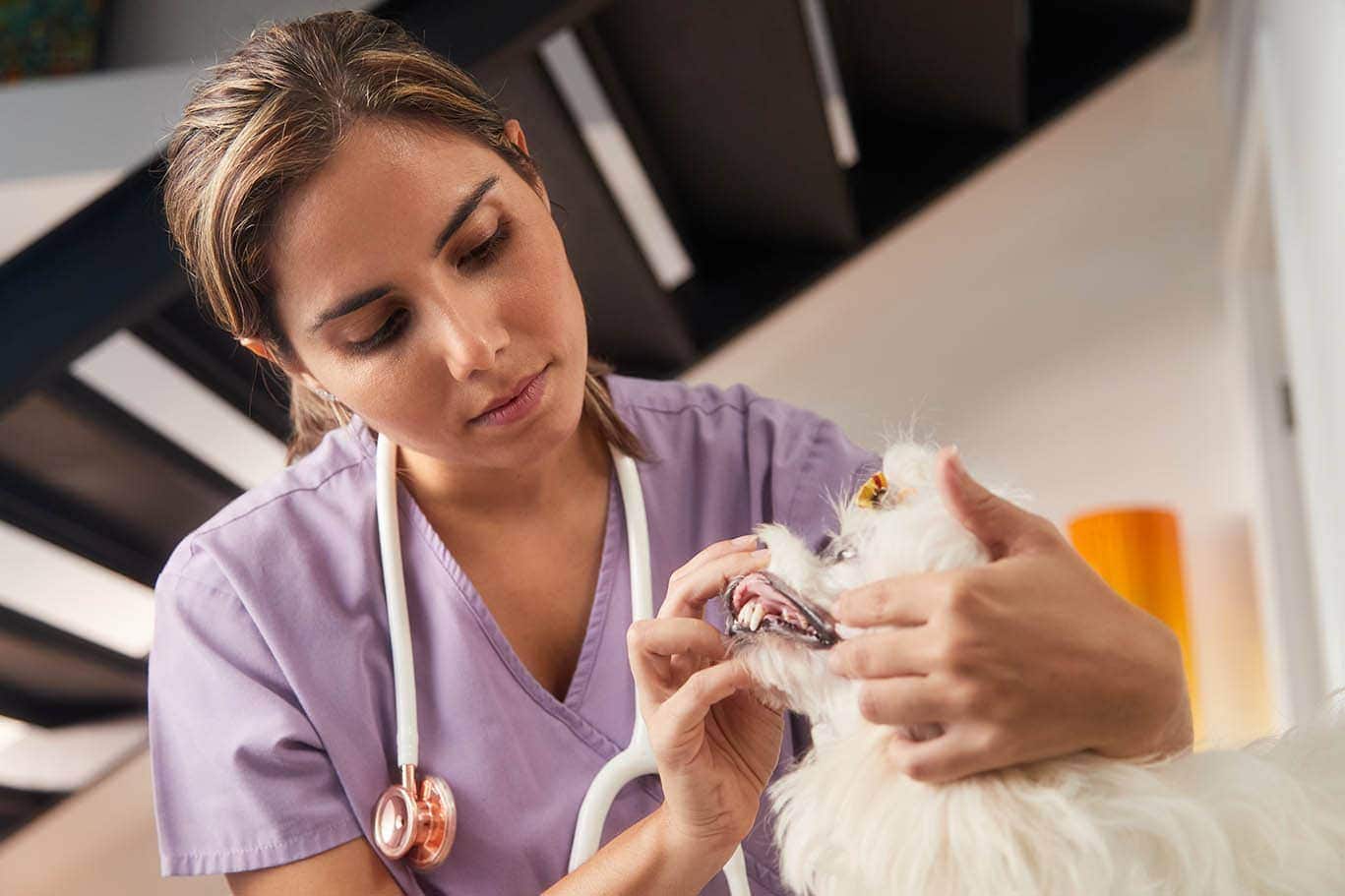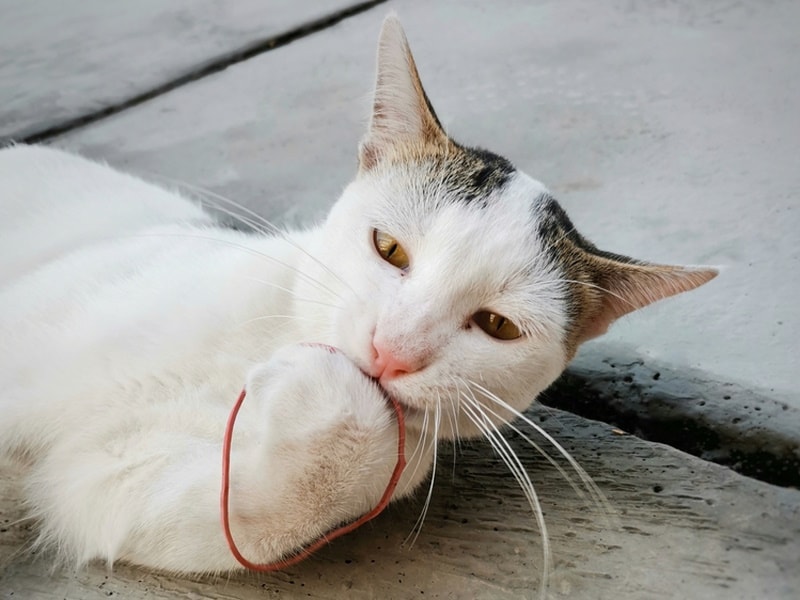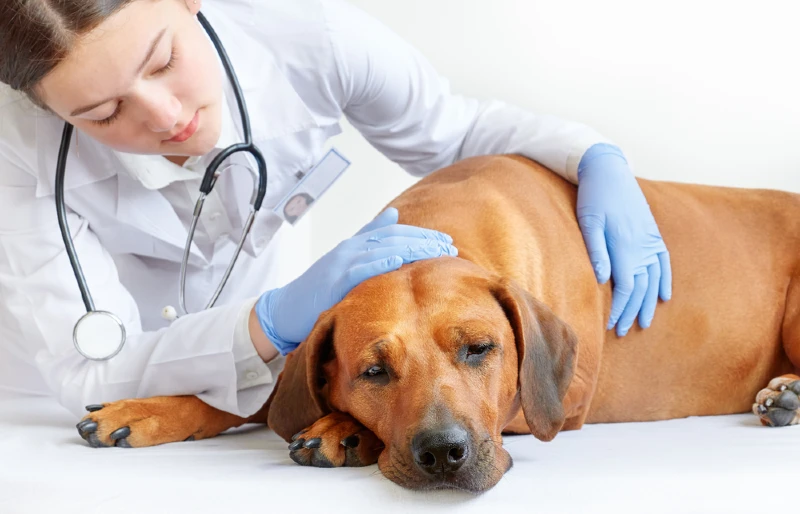Why Does My Puppy Eat So Fast? Our Vet Explains 5 Typical Reasons
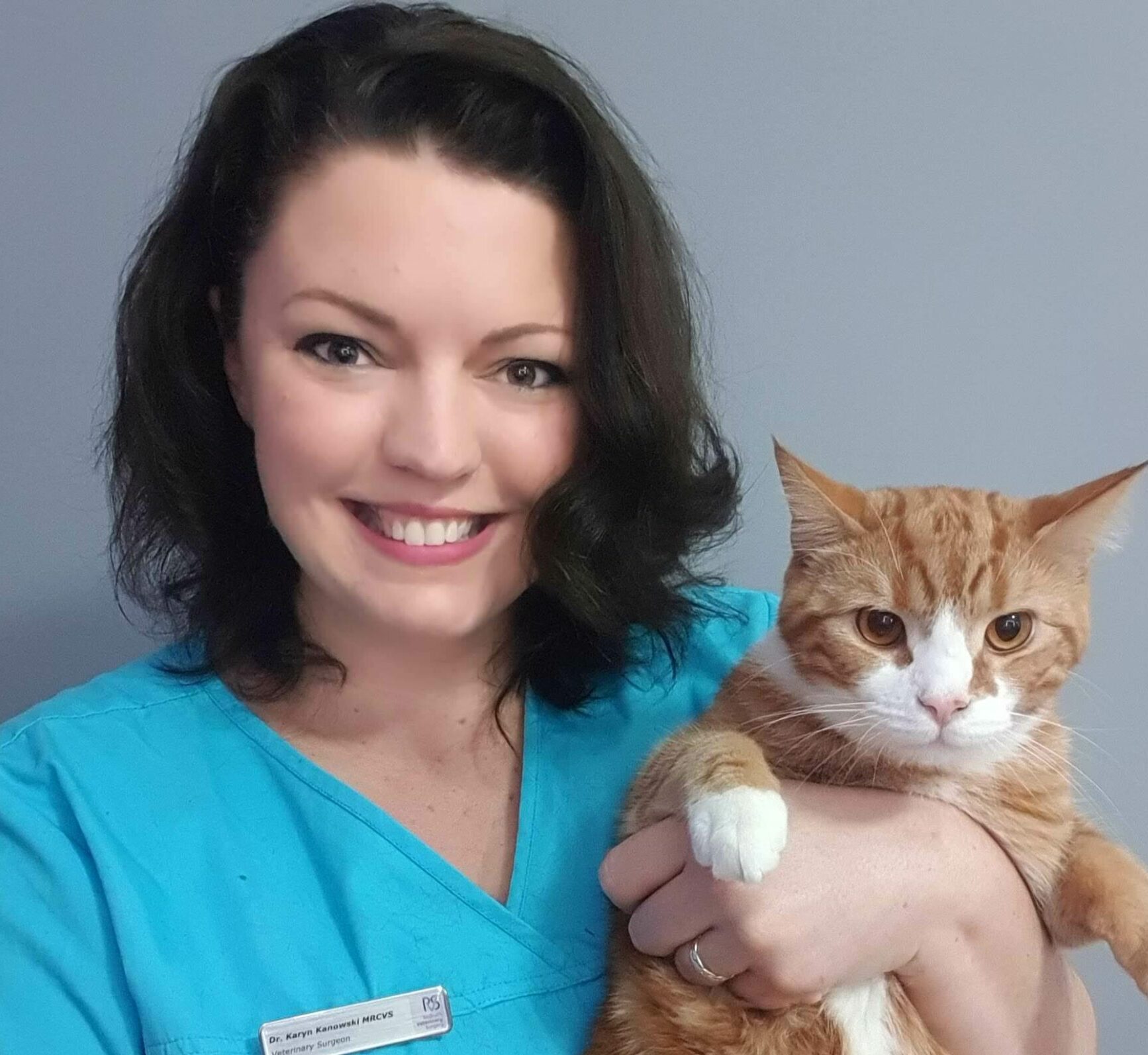
Updated on
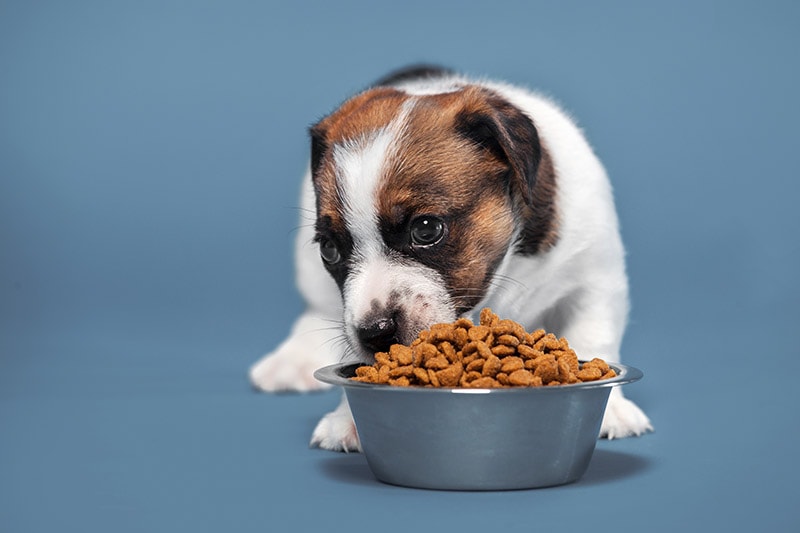
Click to Skip Ahead
Have you ever noticed that your puppy doesn’t so much savor their meals as inhale them? You may have let it slide for the first couple of times, thinking your puppy might be hungry or the food must be really delicious. But you might not have realized that eating too fast can be dangerous for your pup’s health.
Bolting down their food too quickly can lead to regurgitation, vomiting, choking or aspirating (breathing in) their food, and can even affect how well it may be metabolized.
If your puppy seems to berating too fast, read on for some more information about why, and how you can stop it.
The 5 Typical Reasons Why Puppies Eat So Fast
1. Competitive Instincts
If you have multiple pets in your home, it can make your dog insecure, and they may start eating quickly to prevent others from snatching their food. This behavior is more common in puppies that have come from large litters, as they are used to competing for food.
2. Out of Habit
Dogs who have lived in shelters and large litter are more likely to have the habit of eating too fast. These pups have had tough competition for their daily food intake, so this habit stays even when they no longer have to rush.
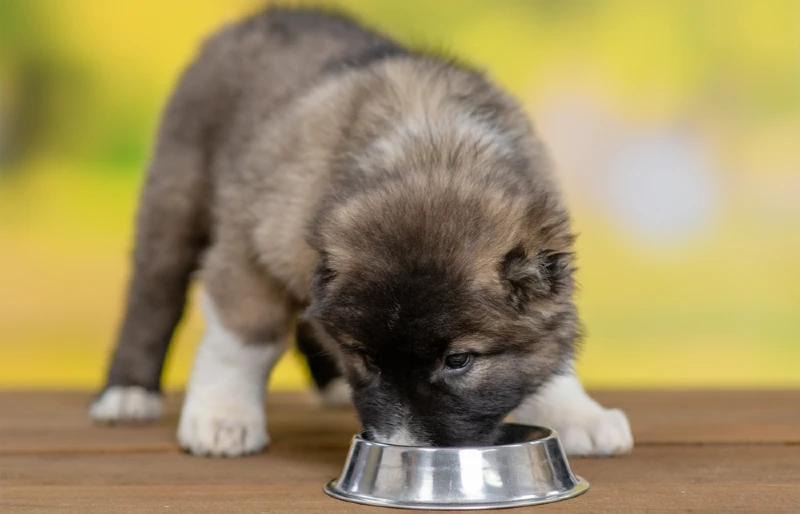
3. Insufficient Nutrition
If a food is low in metabolisable energy, or does not have high quality ingredients, pups will be more inclined to try to eat as quickly as they can, in order to get as much in as possible. This often results in large, loose and frequent bowel movements; a sign that much of what is going in is coming straight through. It is not uncommon for pups in this category to also engage in coprophagy: eating poop.
4. Parasitic Infection
Intestinal parasites are quite common in young dogs. They can pick up intestinal worms such as roundworm, hookworm, or tapeworm from ingesting contaminated feces or from biting fleas. These worms can leach nutrients from the gut, cause intestinal damage and diarrhea, and even cause obstructions. Because worming treatments only kill certain life stages of worms, it is important to worm your pup regularly to ensure any infection is eradicated.
Dogs can also pick up Giardia, a protozoa found in contaminated water, which causes diarrhea and may lead to weight loss and hunger in growing pups.
If you suspect your dog might have parasites, take them to a vet for a checkup. They may ask you to drop off the pup’s fecal sample for the diagnosis.
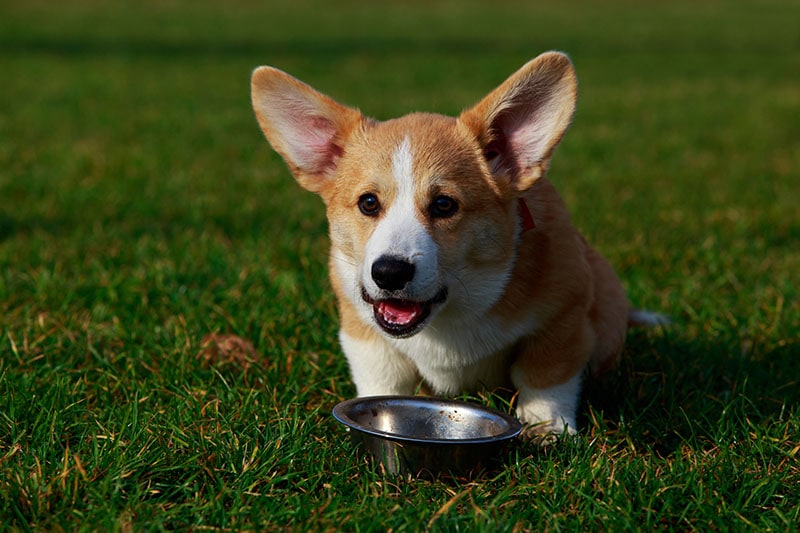
5. An Underlying Illness
Last but not least, your dog may feel excessively hungry due to an underlying illness. Although not common, puppies can have shunts – a condition where the blood vessels that should be going to the liver are diverted somewhere else. In puppies with this condition, the liver is unable to metabolize their food properly, so they become starved of nutrients, leading them to have ravenous appetites.
Is Eating Too Fast Dangerous for Your Puppy?
It certainly can be.
When pups eat too quickly, they will often regurgitate as the food hits the opening to the stomach which is not large enough to allow all the food to pass in one hit. You may notice your pup bringing up undigested food shortly after eating, with virtually no effort. It differs from vomiting which involves abdominal effort to eject digested food from the stomach or intestines.
When they regurgitate or vomit, puppies can breathe in and aspirate some of the food into their lungs, causing infection and pneumonia.
Another problem caused by eating too quickly is bloat. They take in so much air and food in one go that the stomach expands to an uncomfortable level, causing pain, and slowing digestion. In large, deep chested dogs, this can even lead to a life-threatening condition called Gastric Dilatation and Volvulus (GDV), where the bloated stomach twists on itself, cutting off the blood supply to the gastrointestinal tract.
How to Help Your Puppy Eat Slower
Fortunately, there are a number of ways to tackle the problems of eating too fast, and ensure that your pup is getting the most out of their meals, safely.
1. Feed them separately.
If competition with other dogs appears to be the issue, feed your pup in another room, or inside their crate (if they have one), so they know they can take their time to eat without risk of their food being stolen.
2. Use slow-feeder bowls or food puzzles.
These bowls are designed to slow your dog’s feeding with physical barriers in the bowl. Food puzzles can be a great way to slow down your pup’s feeding and provide them with excitement and enrichment.
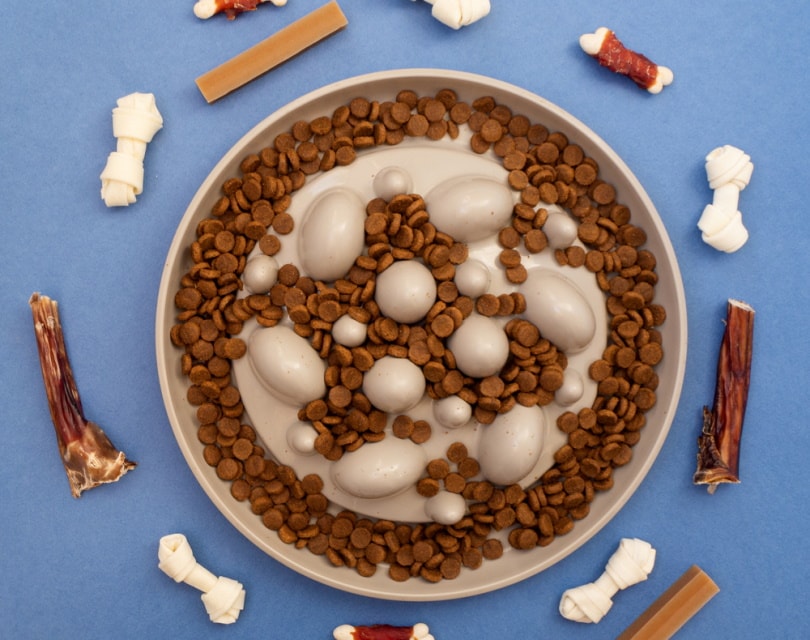
3. Scatter feed.
If using dry kibble, get rid of the bowl completely and scatter their food over a large surface. This forces them to eat their kibble piece by piece, and creates the challenge of making sure they’ve found every last piece!
4. Feed multiple small meals
Instead of 2-3 large meals, feed your pup in 5-6 smaller meals; it will help them feel less hungry, and ensure they cannot eat too much in one sitting.
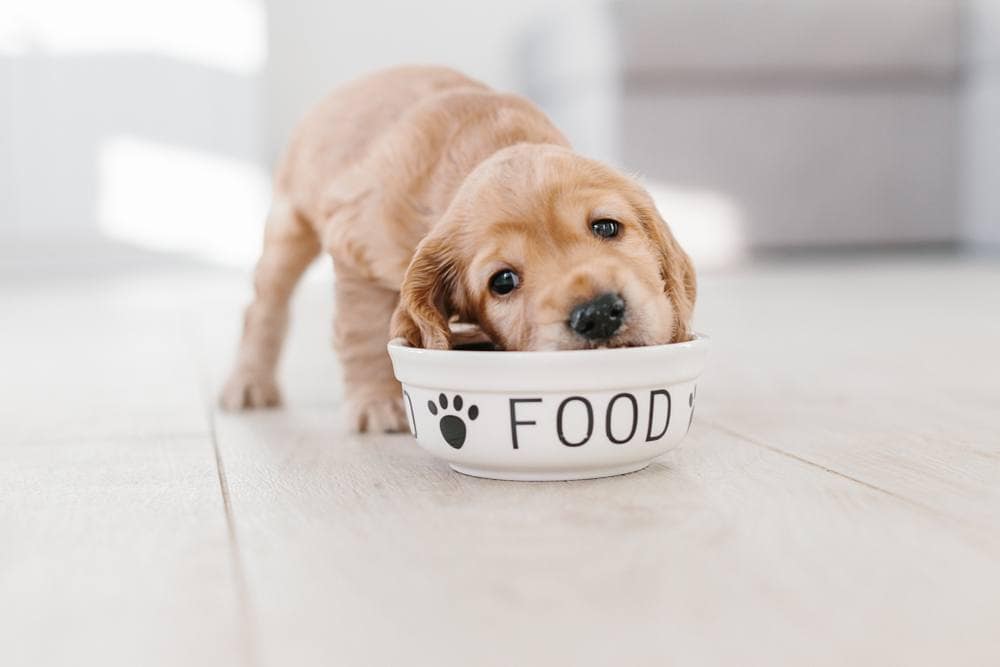
5. Add water
This is another one for the dry kibble eaters. When puppies eat their dry food too quickly, it can lead to bloating, as moisture in the stomach causes the kibble to expand. By adding some warm water to their food and letting it sit for 30 minutes before feeding time, the kibble will expand before it is eaten, and the softened kibble is harder to eat too quickly. Just make sure the food is cool in the middle before offering it to your dog.
6. Feed a high-quality diet.
Higher quality diets contain less “filler” ingredients and have a higher percentage of digestible energy, which helps your pup feel full for longer.
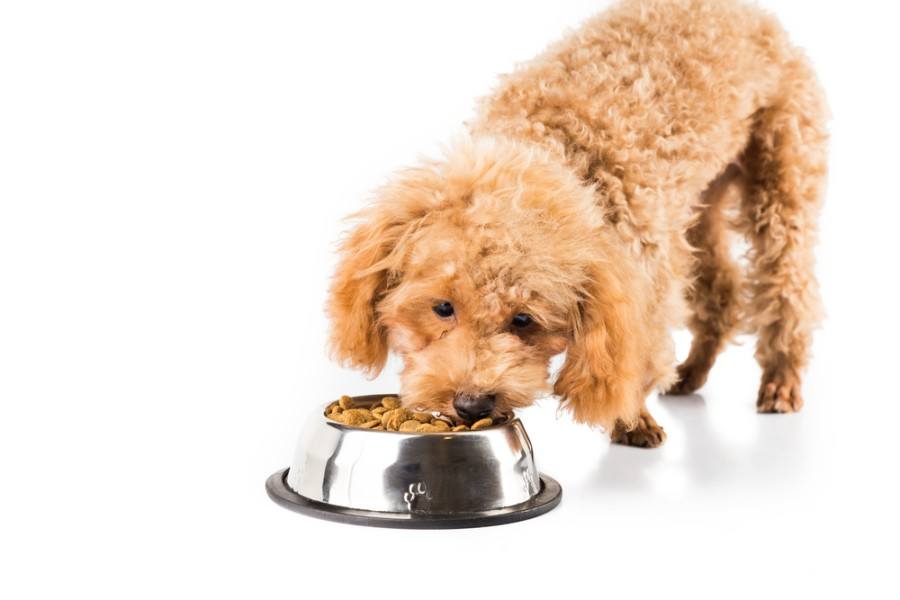
7. Regular worming.
As mentioned earlier, puppies in particular need regular worming treatments to ensure that they do not have intestinal parasites. The recommended interval for worming treatment is every 4 weeks from 2 to 6 months old, then every 3 months after that.
8. Get a health check.
Book an appointment with your vet for a health check to ensure there is no sign of illness that might be driving your puppy’s appetite up.
Conclusion
When your puppy eats quickly, it may not be a cause for concern, and they will often slow down as they get older. In cases where they are regurgitating, losing weight (or failing to put on weight), seem unwell, or are producing a lot of loose poop or diarrhea, we need to address the problem.
Hopefully, the above techniques will help you sort out your puppy’s speed-eating, but if not, book in for a check up with your vet to make sure everything is as it should be.
Featured Image Credit: Gladskikh Tatiana, Shutterstock




